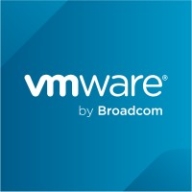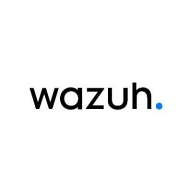

Wazuh and VMware Carbon Black XDR are competitors in cybersecurity. VMware Carbon Black XDR is often favored for its advanced features and effectiveness.
Features: Wazuh provides comprehensive log data analysis, integrated threat intelligence, and flexible compliance management. Its open-source nature allows for customization, appealing to organizations needing tailored solutions. VMware Carbon Black XDR offers automated threat detection and response, extensive endpoint security, and advanced analytics. Its automation capabilities make it feature-rich.
Ease of Deployment and Customer Service: Wazuh is known for its easy setup due to its open-source environment, supporting customizable installations. VMware Carbon Black XDR has a more complex deployment process because of its comprehensive nature. However, it benefits from strong professional support for smooth implementation and management.
Pricing and ROI: Wazuh is attractive for budget-conscious organizations with its low setup cost as an open-source solution, providing a satisfactory ROI through customizable offerings. VMware Carbon Black XDR involves higher initial costs with its extensive features, offering a high ROI for companies prioritizing security investments. Wazuh is seen as cost-efficient, while VMware Carbon Black XDR justifies premium costs with its extensive capabilities.
| Product | Market Share (%) |
|---|---|
| Wazuh | 7.9% |
| VMware Carbon Black XDR | 0.3% |
| Other | 91.8% |
| Company Size | Count |
|---|---|
| Small Business | 27 |
| Midsize Enterprise | 15 |
| Large Enterprise | 8 |
Extended Detection and Response (XDR) is a security technology that provides extended visibility, analysis, and response across networks and clouds in addition to apps and endpoints. XDR is a more sophisticated and advanced progression of endpoint detection and response (EDR) security.
Wazuh offers an open-source platform designed for seamless integration into diverse environments, making it ideal for enhancing security infrastructure. Its features include log monitoring, compliance support, and real-time threat detection, providing effective cybersecurity management.
Wazuh stands out for its ability to integrate easily with Kubernetes, cloud-native infrastructures, and various SIEM platforms like ELK. It features robust MITRE ATT&CK correlation, comprehensive log monitoring capabilities, and detailed reporting dashboards. Users benefit from its file integrity monitoring and endpoint detection and response (EDR) capabilities, which streamline compliance and vulnerability assessments. While appreciated for its customization and easy deployment, room for improvement exists in scalability, particularly in the free version, and in areas such as threat intelligence integration, cloud integration, and container security. The platform is acknowledged for its strong documentation and technical support.
What are the key features of Wazuh?In industries like finance, healthcare, and technology, Wazuh is utilized for its capabilities in log aggregation, threat detection, and vulnerability management. Companies often implement its features to ensure compliance with stringent regulations and to enhance security practices across cloud environments. By leveraging its integration capabilities, organizations can achieve unified security management, ensuring comprehensive protection of their digital assets.
We monitor all Extended Detection and Response (XDR) reviews to prevent fraudulent reviews and keep review quality high. We do not post reviews by company employees or direct competitors. We validate each review for authenticity via cross-reference with LinkedIn, and personal follow-up with the reviewer when necessary.